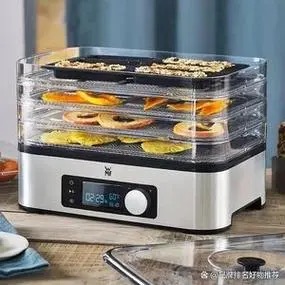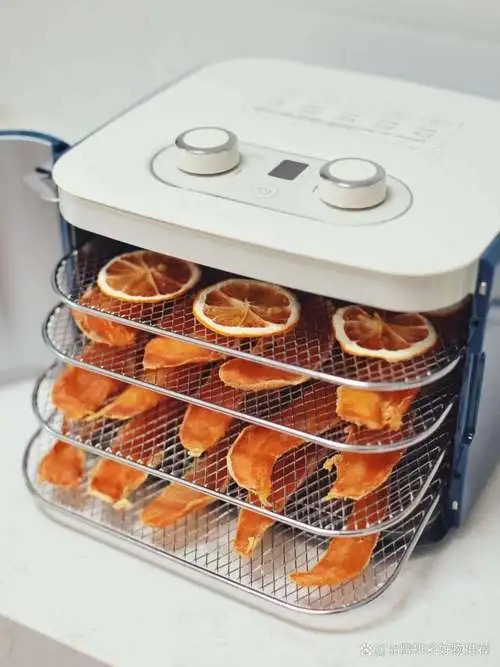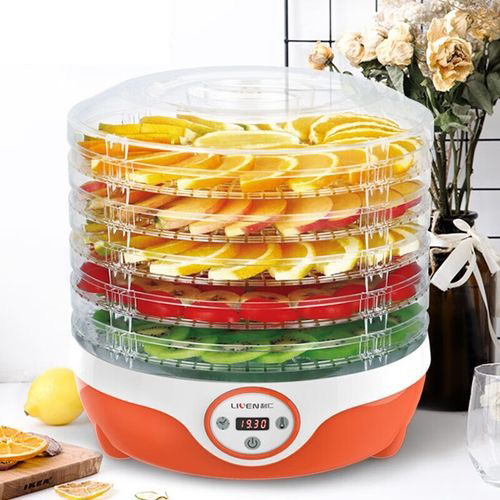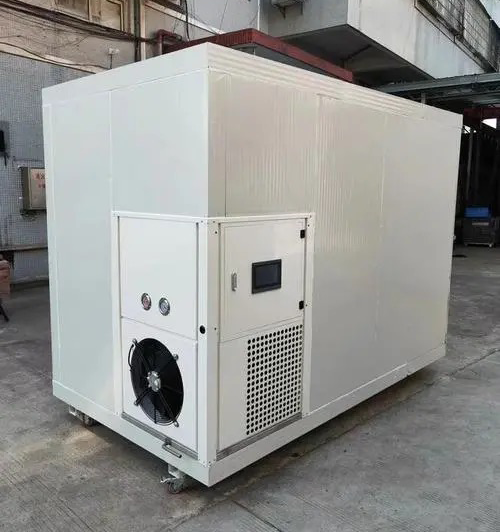
Content Menu
● Introduction to Fruit Drying Technology in Lebanon
● The Rise of Commercial Fruit Drying Machines in Lebanon
>> Benefits of Commercial Fruit Dryers
● Food Dehydrators: A Revolution in Home Fruit Preservation
>> Features of Modern Food Dehydrators
● Industrial Fruit Dryers: Powering Lebanon's Agri-business Sector
>> Types of Industrial Fruit Dryers in Lebanon
● Vegetable Drying Machines: Expanding Beyond Fruits
>> Popular Dried Vegetables in Lebanon
● The Technology Behind Fruit and Vegetable Dehydrators
● Stainless Steel Fruit Dryers: The Industry Standard
● Multi-layer Fruit Drying Machines: Maximizing Efficiency
● Fruit Preservation Technology: Beyond Simple Drying
● The Future of Fruit Drying in Lebanon
● Conclusion
● Frequently Asked Questions
>> 1. What are the most popular fruits dried using fruit dryer machines in Lebanon?
>> 2. How long does it typically take to dry fruits using a commercial fruit drying machine?
>> 3. Are there any government regulations in Lebanon regarding the use of fruit dryer machines?
>> 4. Can fruit dryer machines be used for organic fruit production in Lebanon?
>> 5. What is the average lifespan of a commercial fruit dryer machine in Lebanon?
Introduction to Fruit Drying Technology in Lebanon
Lebanon, a country known for its rich agricultural heritage and bountiful harvests, has been embracing modern food preservation techniques to maximize the value of its produce. Among these techniques, fruit drying has gained significant popularity in recent years. The use of fruit dryer machines in Lebanon has revolutionized the way farmers, small businesses, and even households preserve their fruits and vegetables, ensuring that the flavors of summer can be enjoyed all year round.
The Rise of Commercial Fruit Drying Machines in Lebanon
As the demand for dried fruits and vegetables continues to grow both domestically and internationally, Lebanon has seen a surge in the adoption of commercial fruit drying machines. These sophisticated pieces of equipment are designed to efficiently dehydrate large quantities of produce while maintaining optimal flavor, color, and nutritional value.
Commercial fruit drying machines in Lebanon come in various sizes and capacities, catering to the diverse needs of the country's agricultural sector. From small-scale farmers looking to diversify their product offerings to large food processing companies aiming to meet export demands, these machines have become an integral part of the food industry infrastructure.

Benefits of Commercial Fruit Dryers
1. Increased Shelf Life: By removing moisture from fruits and vegetables, these machines significantly extend the shelf life of produce, reducing waste and increasing profitability.
2. Preservation of Nutrients: Modern fruit dryers are designed to retain a high percentage of the original nutrients in the produce, ensuring that dried fruits and vegetables remain a healthy snack option.
3. Year-round Availability: With the ability to dry and store fruits, Lebanese businesses can offer their products throughout the year, regardless of seasonal availability.
4. Export Opportunities: Dried fruits have become a popular export item for Lebanon, opening up new markets and economic opportunities for local producers.
Food Dehydrators: A Revolution in Home Fruit Preservation
While commercial fruit drying machines cater to larger operations, the rise of home food dehydrators has brought the benefits of fruit drying to Lebanese households. These compact, electric fruit dryers have become increasingly popular among health-conscious consumers and home cooks looking to preserve their garden harvests.
Features of Modern Food Dehydrators
1. Multiple Trays: Most food dehydrators come with multiple trays, allowing users to dry different types of fruits and vegetables simultaneously.
2. Temperature Control: Adjustable temperature settings ensure that each type of produce is dried at its optimal temperature, preserving flavor and texture.
3. Timer Function: Built-in timers allow for precise drying times, preventing over-drying and ensuring consistent results.
4. Even Air Distribution: Advanced air circulation systems ensure that all trays receive equal heat distribution for uniform drying.
Industrial Fruit Dryers: Powering Lebanon's Agri-business Sector
For large-scale operations, industrial fruit dryers have become the backbone of Lebanon's dried fruit industry. These high-capacity machines are capable of processing tons of fruits and vegetables daily, meeting the demands of both domestic and international markets.
Types of Industrial Fruit Dryers in Lebanon
1. Tunnel Dryers: Ideal for continuous production, tunnel dryers allow for a steady flow of produce through different temperature zones.
2. Tray Dryers: Perfect for batch processing, tray dryers offer flexibility in handling various types and quantities of fruits.
3. Freeze Dryers: Although more expensive, freeze dryers are used for premium products, preserving the original shape and flavor of the fruit.

Vegetable Drying Machines: Expanding Beyond Fruits
While fruit drying has been the primary focus, many Lebanese businesses are expanding their operations to include vegetable drying. Vegetable drying machines in Lebanon are often designed to handle both fruits and vegetables, offering versatility to producers.
Popular Dried Vegetables in Lebanon
1. Tomatoes: Sun-dried tomatoes have become a staple in Lebanese cuisine and a popular export item.
2. Eggplants: Dried eggplants are used in traditional dishes and are gaining popularity as a healthy snack.
3. Bell Peppers: Dried bell peppers add color and flavor to various dishes and are in high demand.
4. Herbs: Lebanese herbs like za'atar and mint are dried to preserve their intense flavors for use throughout the year.
The Technology Behind Fruit and Vegetable Dehydrators
Modern fruit and vegetable dehydrators used in Lebanon incorporate advanced technology to ensure efficient and high-quality drying. These machines typically feature:
1. Precise Temperature Control: Digital temperature controls allow for accurate settings, crucial for different types of produce.
2. Humidity Sensors: Monitoring and adjusting humidity levels during the drying process ensures optimal results.
3. Energy-efficient Design: Many newer models are designed to be energy-efficient, reducing operational costs for businesses.
4. Smart Controls: Some high-end models come with smart controls, allowing remote monitoring and adjustment of drying parameters.
Stainless Steel Fruit Dryers: The Industry Standard
In Lebanon's fruit drying industry, stainless steel fruit dryers have become the gold standard. The use of stainless steel in these machines offers several advantages:
1. Durability: Stainless steel construction ensures longevity and resistance to corrosion, even in humid environments.
2. Easy Cleaning: The smooth surface of stainless steel makes cleaning and sanitizing the equipment much easier, crucial for food safety.
3. Heat Distribution: Stainless steel's thermal properties allow for even heat distribution, resulting in uniformly dried products.
4. Food Safety: Being non-reactive, stainless steel prevents any unwanted flavors or chemicals from leaching into the dried fruits.
Multi-layer Fruit Drying Machines: Maximizing Efficiency
To meet the growing demand for dried fruits and vegetables, many Lebanese producers are turning to multi-layer fruit drying machines. These efficient systems allow for:
1. Increased Capacity: Multiple layers mean more produce can be dried in a single cycle.
2. Space Efficiency: Vertical stacking of trays maximizes floor space utilization in processing facilities.
3. Customizable Drying: Different layers can be set to different temperatures, allowing for the simultaneous drying of various fruits.
4. Improved Air Circulation: Advanced designs ensure that hot air circulates evenly through all layers, resulting in consistent drying.
Fruit Preservation Technology: Beyond Simple Drying
While traditional drying methods remain popular, Lebanon's food processing industry is also exploring advanced fruit preservation technologies. These include:
1. Osmotic Dehydration: This process involves partially dehydrating fruits in a sugar solution before final drying, resulting in sweeter, more flavorful dried fruits.
2. Vacuum Drying: By drying fruits in a vacuum environment, processors can achieve high-quality dried products with minimal heat exposure.
3. Microwave Drying: This rapid drying method is gaining traction for its ability to quickly dry fruits while retaining color and flavor.
4. Combination Technologies: Some processors are experimenting with combining different drying methods to achieve optimal results for specific fruits.
The Future of Fruit Drying in Lebanon
As Lebanon continues to position itself as a key player in the global dried fruit market, the future of fruit drying technology in the country looks promising. Ongoing research and development are focused on:
1. Energy Efficiency: Developing more energy-efficient drying methods to reduce costs and environmental impact.
2. Smart Integration: Incorporating IoT (Internet of Things) technology for better monitoring and control of drying processes.
3. Novel Products: Exploring new combinations of dried fruits and vegetables to create innovative snack products.
4. Sustainable Practices: Implementing eco-friendly drying techniques and packaging solutions to meet growing consumer demand for sustainable products.
Conclusion
The adoption of fruit dryer machines in Lebanon has transformed the country's agricultural landscape, opening up new opportunities for farmers, entrepreneurs, and food processors. From small-scale home dehydrators to large industrial drying facilities, these machines have become essential tools in preserving Lebanon's rich bounty of fruits and vegetables.
As technology continues to advance and consumer demand for healthy, convenient snacks grows, the fruit drying industry in Lebanon is poised for further expansion. By embracing innovation and maintaining a commitment to quality, Lebanon is set to strengthen its position as a leading producer of dried fruits and vegetables in the region and beyond.

Frequently Asked Questions
1. What are the most popular fruits dried using fruit dryer machines in Lebanon?
Answer: The most popular fruits dried in Lebanon include apricots, figs, grapes (raisins), apples, and peaches. These fruits are not only consumed locally but are also popular export items.
2. How long does it typically take to dry fruits using a commercial fruit drying machine?
Answer: The drying time can vary depending on the type of fruit, its moisture content, and the specific machine used. On average, it can take anywhere from 6 to 24 hours to fully dry fruits in a commercial setting.
3. Are there any government regulations in Lebanon regarding the use of fruit dryer machines?
Answer: Yes, there are regulations in place to ensure food safety and quality. Businesses using fruit dryer machines must comply with Lebanese food safety standards and may need to obtain certifications from relevant authorities.
4. Can fruit dryer machines be used for organic fruit production in Lebanon?
Answer: Absolutely. Many organic fruit producers in Lebanon use fruit dryer machines. The drying process itself doesn't affect the organic status of the fruit, as long as no additional non-organic substances are used during the drying process.
5. What is the average lifespan of a commercial fruit dryer machine in Lebanon?
Answer: With proper maintenance, a high-quality commercial fruit dryer machine can last 10-15 years or more. However, this can vary depending on usage, maintenance, and the specific model of the machine.












